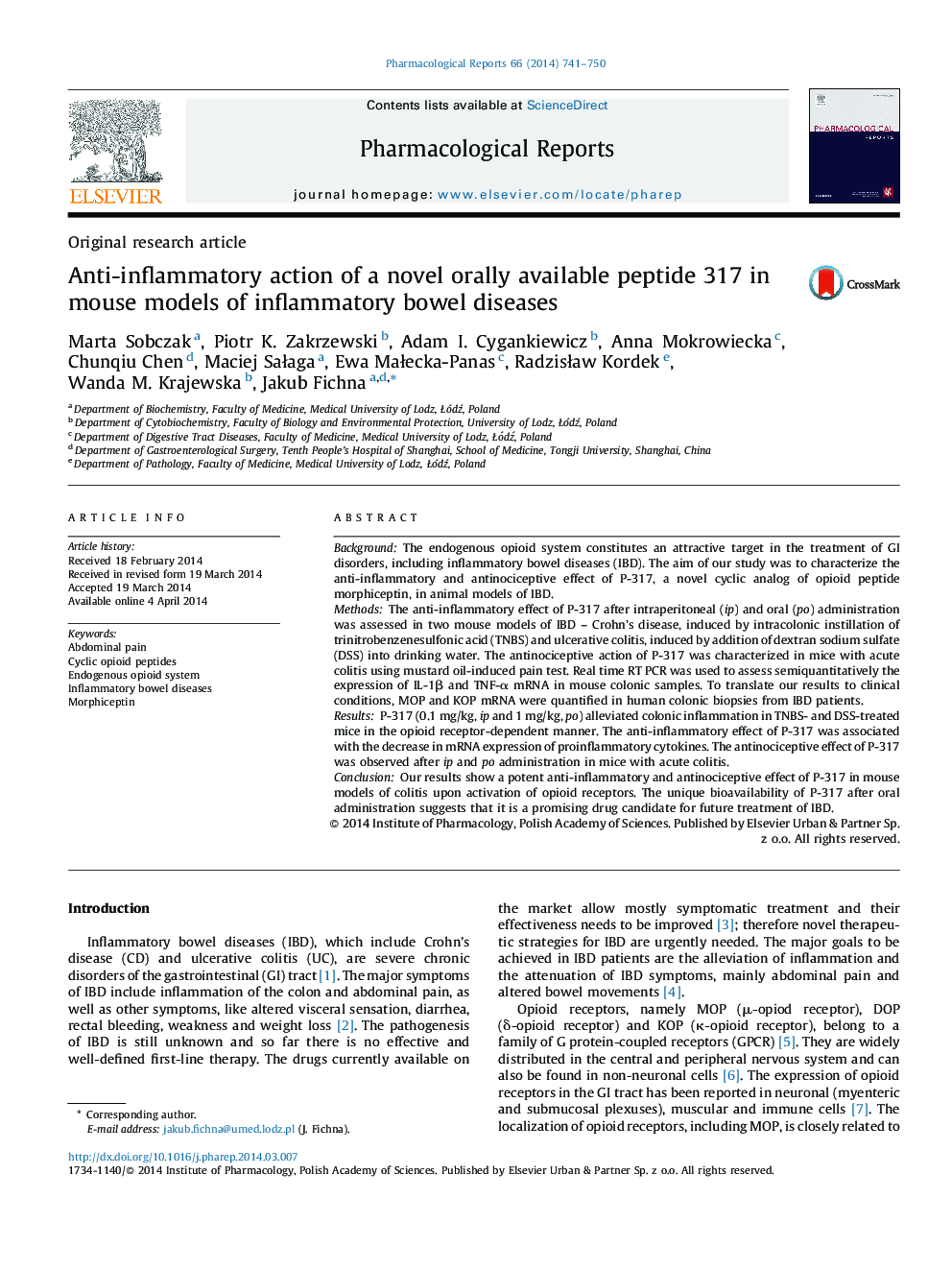| Article ID | Journal | Published Year | Pages | File Type |
|---|---|---|---|---|
| 2010895 | Pharmacological Reports | 2014 | 10 Pages |
BackgroundThe endogenous opioid system constitutes an attractive target in the treatment of GI disorders, including inflammatory bowel diseases (IBD). The aim of our study was to characterize the anti-inflammatory and antinociceptive effect of P-317, a novel cyclic analog of opioid peptide morphiceptin, in animal models of IBD.MethodsThe anti-inflammatory effect of P-317 after intraperitoneal (ip) and oral (po) administration was assessed in two mouse models of IBD – Crohn's disease, induced by intracolonic instillation of trinitrobenzenesulfonic acid (TNBS) and ulcerative colitis, induced by addition of dextran sodium sulfate (DSS) into drinking water. The antinociceptive action of P-317 was characterized in mice with acute colitis using mustard oil-induced pain test. Real time RT PCR was used to assess semiquantitatively the expression of IL-1β and TNF-α mRNA in mouse colonic samples. To translate our results to clinical conditions, MOP and KOP mRNA were quantified in human colonic biopsies from IBD patients.ResultsP-317 (0.1 mg/kg, ip and 1 mg/kg, po) alleviated colonic inflammation in TNBS- and DSS-treated mice in the opioid receptor-dependent manner. The anti-inflammatory effect of P-317 was associated with the decrease in mRNA expression of proinflammatory cytokines. The antinociceptive effect of P-317 was observed after ip and po administration in mice with acute colitis.ConclusionOur results show a potent anti-inflammatory and antinociceptive effect of P-317 in mouse models of colitis upon activation of opioid receptors. The unique bioavailability of P-317 after oral administration suggests that it is a promising drug candidate for future treatment of IBD.
